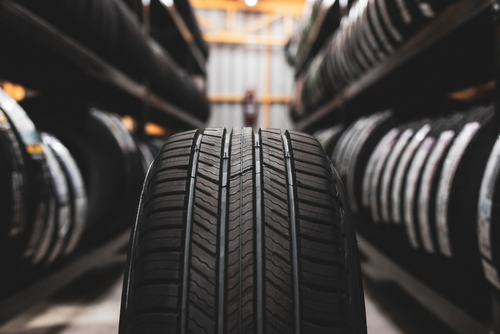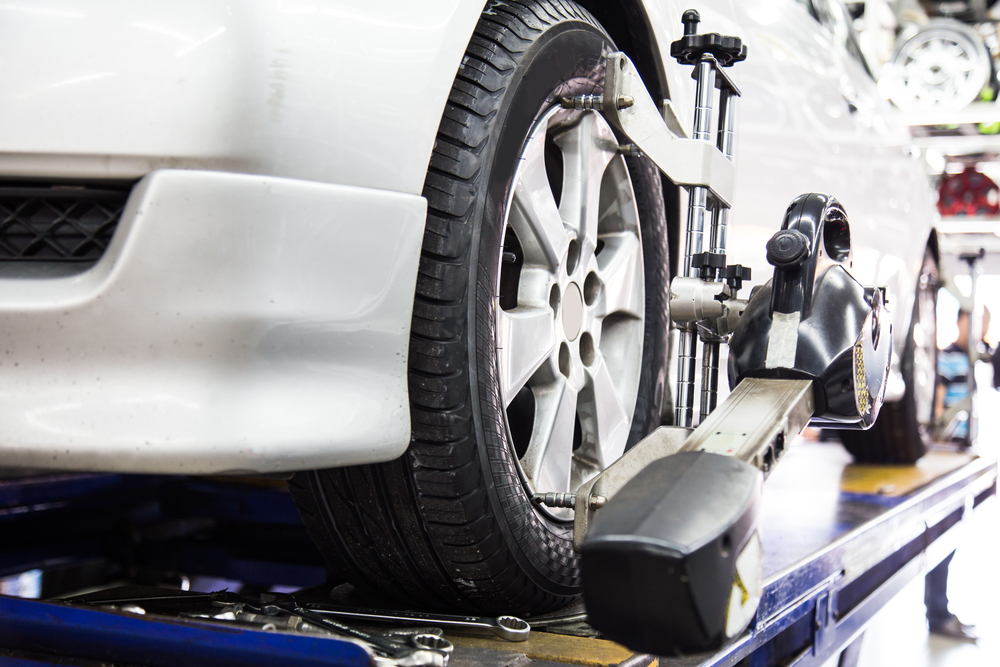
As the temperatures start to warm up and the snow begins to melt, many drivers start to think about making the switch from winter tires to all-season tires. While winter tires are designed for optimal performance in snow and ice, all-season tires are a versatile option that can provide good traction in a variety of road conditions. In this blog post, we will discuss why spring is the perfect time to upgrade to all-season tires and the benefits of making the switch.
Benefits of All-Season Tires
All-season tires are designed to perform well in a variety of road conditions, including dry, wet, and snowy conditions. These tires have a unique tread pattern that provides good grip on both dry and wet roads, as well as in light snow. This versatility makes all-season tires a popular choice for many drivers who want a tire that can perform well in a variety of weather conditions without the need to switch out tires seasonally.
Improved Performance
One of the main benefits of upgrading to all-season tires is the improvement in performance that they offer. All-season tires are designed to provide good traction and handling in a variety of road conditions, which can make for a more comfortable and stable driving experience. These tires are typically quieter and smoother on the road compared to winter tires, which can provide a more enjoyable driving experience for those who spend a lot of time behind the wheel.
Cost-Effective Solution
Another benefit of upgrading to all-season tires is the cost-effectiveness of this option. While winter tires are designed for optimal performance in snow and ice, they can be expensive to purchase and maintain. All-season tires, on the other hand, are a more affordable option that can provide good performance in a variety of road conditions. By investing in all-season tires, you can save money in the long run by avoiding the need to switch out tires seasonally and by prolonging the life of your tires.
Convenience
Making the switch to all-season tires in the spring can also offer added convenience for drivers. Instead of having to schedule an appointment to have winter tires removed and all-season tires installed, you can make the switch yourself or visit a tire shop at your convenience. This can save you time and hassle, allowing you to enjoy the warmer weather and get back on the road quickly and easily.
Safety and Peace of Mind
Safety is always a top priority for drivers, and upgrading to all-season tires can provide added peace of mind on the road. All-season tires are designed to provide good traction and handling in a variety of road conditions, which can help you feel more confident and secure behind the wheel. By upgrading to all-season tires in the spring, you can ensure that you have the right tires for the changing weather conditions and road surfaces, reducing the risk of accidents and improving overall safety on the road.
Choosing the Right All-Season Tires
When upgrading to all-season tires, it is important to choose the right tires for your vehicle and driving needs. Consider factors such as tread design, tire size, load and speed ratings, and overall performance when selecting all-season tires. Consult with a tire professional to determine the best all-season tires for your vehicle and driving habits to ensure optimal performance and safety on the road.
Proper Installation and Maintenance
Once you have chosen the right all-season tires for your vehicle, it is important to ensure that they are properly installed and maintained. Have your all-season tires installed by a qualified professional to ensure that they are mounted correctly and balanced properly. Additionally, regularly check the inflation of your tires and rotate them as needed to ensure even wear and optimal performance. Proper installation and maintenance of your all-season tires can help prolong their lifespan and ensure that they provide reliable performance on the road.
Summary
Upgrading to all-season tires in the spring is a smart choice for drivers who want a versatile tire option that can perform well in a variety of road conditions. All-season tires offer improved performance, cost-effectiveness, convenience, safety, and peace of mind on the road. By choosing the right all-season tires for your vehicle, ensuring proper installation and maintenance, and making the switch in the spring, you can enjoy a smoother, safer, and more enjoyable driving experience. So, consider upgrading to all-season tires this spring and reap the benefits of this versatile tire option.
Need Auto Repair & Maintenance In Woodbridge, VA?
Parkway Automotive is Woodbridge, VA’s top choice for automotive repairs and services. As a veteran-owned and operated business, we are dedicated to providing exceptional customer service and reliable solutions for all your automotive needs. Our experienced technicians are well-equipped to handle various services, including oil changes, brake repairs, tire replacements, alignments, AC repair, and diagnostics. We offer a 10% discount to military personnel, first responders, nurses, and teachers as a token of our gratitude. Contact us today and experience the Parkway Automotive difference!

One of the most essential components of a vehicle is its tires. They play a crucial role in providing grip, stability, and overall safety on the road. However, like any other part of a car, tires undergo wear and tear and eventually require replacement. In this blog, we will discuss how often car tires need to be replaced and the factors that determine their lifespan.
Factors Affecting Tire Lifespan:
1. Tread Wear Rating:
Every tire comes with a tread wear rating provided by the manufacturer. This rating indicates the expected lifespan of the tire based on standardized testing. The higher the tread wear rating, the longer the tire is expected to last under normal driving conditions.
2. Driving Habits:
Your driving habits have a significant impact on tire wear. Aggressive acceleration, hard braking, and fast cornering can lead to increased tire wear. Similarly, driving on rough or poorly-maintained roads can accelerate the deterioration of your tires.
3. Road Conditions:
The condition of the roads you drive on also affects the lifespan of your tires. Rough or uneven surfaces, potholes, and debris on the road can cause damage to your tires and reduce their lifespan. Driving on unpaved roads or surfaces with sharp objects can lead to punctures or cuts on the tire that may require immediate replacement.
4. Tire Maintenance and Care:
Proper tire maintenance and care play a vital role in extending their lifespan. Regularly checking tire pressure, rotating tires, and ensuring proper wheel alignment and balance helps distribute the wear more evenly across the tire. Failure to maintain the tires properly can lead to premature wear and reduce their longevity.
When to Replace Car Tires:
1. Tread Depth:
The most common indicator for replacing tires is the tread depth. Tread depth is the measurement of the remaining tread on the tire. As tires wear down, the tread depth decreases, impacting their ability to provide traction on the road. In most regions, it is recommended to replace tires when the tread depth reaches 2/32 of an inch. This limit ensures optimal safety and performance.
2. Tread Wear Indicator:
Many tires have tread wear indicators built into them. These are small rubber bars or indicators located within the tread grooves. When the tire wears down to the same level as these indicators, it is a clear sign that the tire needs replacement.
3. Visible Damage:
Visible damage to the tire, such as punctures, cuts, bulges, or sidewall damage, should be addressed immediately. Depending on the severity and location of the damage, it may not be possible to repair the tire, making replacement necessary. Driving on a damaged tire is unsafe and should be avoided.
4. Age and Mileage:
Even if the tire does not show signs of wear or visible damage, it is essential to consider its age and mileage. Tires generally have a lifespan of 6 to 10 years, regardless of the amount of tread depth remaining. This is due to the degradation of the rubber compound over time. If your tires are more than 6 years old, it is recommended to have them inspected regularly and consider replacement.
Summary:
Replacing car tires is a necessary part of vehicle maintenance. The frequency of replacement depends on several factors, including the tread wear rating, driving habits, road conditions, and tire maintenance. Monitoring tread depth, identifying tread wear indicators, checking for visible damage, and considering the age and mileage of the tires will help determine when replacement is needed. Properly maintained and replaced tires ensure optimal safety and performance on the road. Consulting with a tire professional can provide further guidance on when and how often to replace your car tires.
Need Auto Repair & Maintenance In Woodbridge, VA?
Parkway Automotive is Woodbridge, VA’s top choice for automotive repairs and services. As a veteran-owned and operated business, we are dedicated to providing exceptional customer service and reliable solutions for all your automotive needs. Our experienced technicians are well-equipped to handle various services, including oil changes, brake repairs, tire replacements, alignments, AC repair, and diagnostics. We offer a 10% discount to military personnel, first responders, nurses, and teachers as a token of our gratitude. Contact us today and experience the Parkway Automotive difference!



